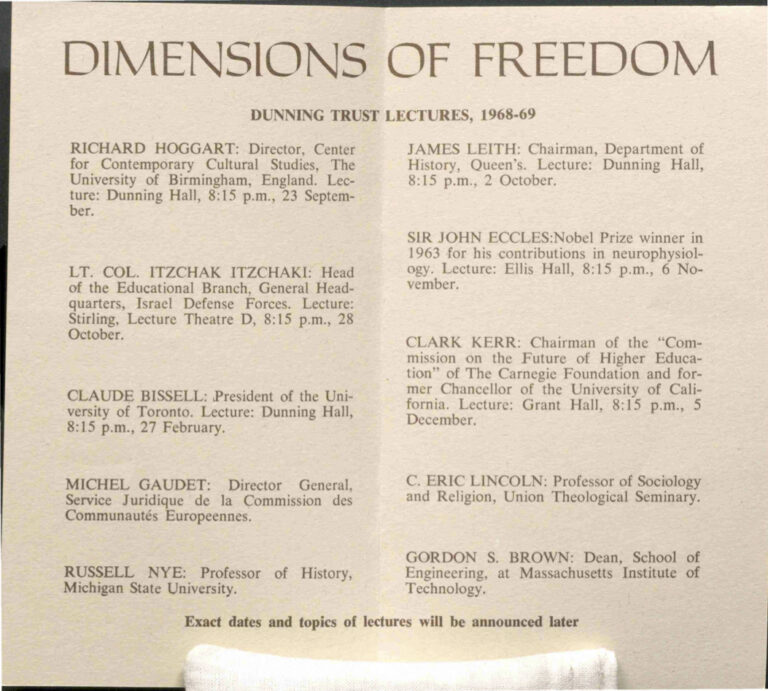
Claude Bissell was the president of the University of Toronto. After completing graduate work in English and Philosophy, he returned to University College at the University of Toronto in 1941, leaving temporarily the next year to join the war effort. His academic work considered the relationship between literature and society. He developed a graduate course on Canadian literature with fellow Dunning Trust lecturer Donald Creighton. As president of the University of Toronto from 1958-1971, he had a major role in the postwar expansion of the university, including the creation of three new colleges at the downtown campus and the establishment of two new campuses. A sabbatical in 1967-68 at Harvard introduced Bissell to American student activism, and inspired his approach to redrawing the administrative structure of the University of Toronto. From 1960-1962, he was president of the Canada Council. He was also a member of the Ontario Council of the Arts, a governor the Stratford Shakespearean Festival Foundation, and a trustee of the Woodrow Wilson Fellowship Foundation. He was elected to the Royal Society of Canada in 1957 and was made a Companion of the Order of Canada in 1969. He received over 20 honorary degrees, as well as numerous fellowships and book awards. He died in 2000.
In his lecture, Bissell addressed the increasingly prominent demands from students for a voice in university affairs. While he celebrated the potential of student participation to enliven the community, making the institution more sympathetic to innovation, new curricula, and awakening an interest in the analysis of the university as an institution, he also argued that student activists’ “naive attachment to an anti-intellectual, authoritarian point of voice and their acceptance of violence may have grim consequences.” While traditional academic freedom applied to faculty, Bissell saw a new concept of academic freedom that applied principally to the student emerging. Increasingly, freedom for the student was the power to make decisions about their environment and to be protected against institutional coercion and injustice, including the right to hear controversial speakers. The student’s concept of freedom was distinct from the traditional version, he argued, in that the impediments to freedom were now located within, not without, the institution. Students also considered tenure a form of tyranny and demanded a voice in appointments and promotions which faculty in turn believed threatened their concept of academic freedom. Ultimately, the university needed to decide how to resolve the issue, as student activism, while laudable for its emphasis on freedom as a moral and intellectual value, had the potential to undermine the “whole structure of the university.”
Listen to or read Bissell’s lecture below.